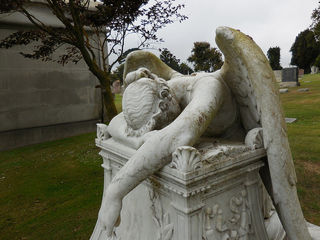Relationships
Love and the Fear of Loss
Nurture love in your life by learning to live with its fragile nature.
Posted February 9, 2016 Reviewed by Jessica Schrader

Beauty. Love. Loss. These three are all really one and the same. This is the thought that came to me one lazy, relaxed morning as I gazed upon a bouquet of flowers on my bureau. It was bathed by warm sunlight, and I was deeply moved by its beauty. But as I became conscious of feeling a warm, loving sensation, I also felt increasingly saddened for its impending loss. The light would soon shift away from the petals, and eventually, the flowers would die. In a moment of what I later realized was subconscious desperation, I tried to hold onto the moment by taking a picture with my phone. But it produced a cheap copy of a living masterpiece. That’s when it hit me—appreciating beauty is a kind of love, and grief is inextricably tied to that love. In the context of life, this was a small love and loss, but its message was like a neon billboard: Beauty and love are one, and they exist only with the shadow of impending loss.
The eventuality of loss always exists when we feel love—either for a person, a thing, or an experience. This makes love all that much more precious. It’s a fragile, beautiful experience to be treasured.
But sometimes people are overcome—even paralyzed—by the feared or expected pain associated with that loss. So they try to protect against their pain. They might try to hold tight to the moment, such as by taking a picture. Or, by making sure that a relationship stays positive, avoiding conflict at all costs. Unfortunately, these efforts break the living connection, making the object of their love more of a possession. People may tend to the object; looking at their photograph—or doing everything “right” for their partner—but they are no longer fully open and connected. Inevitably, the love dies.
Sometimes people defend against the feared or expected pain from loss by staying emotionally distant from people. They might even keep their lives small and controllable. But this leaves them feeling cut off from an important part of themselves that is curious, wants to explore and grow, or even has a hidden passion. As a result, they remain stifled and feel empty or dead inside.
If you realize that you are protecting yourself from the pain of loss, you have a decision to make. You can let that moment of realization slip by and continue to live a defended life. Or, you can take action toward breaking loose. You might want to journal, talk with supportive friends, or address it with a therapist. (For more on how to become more self-aware, read The Key to Unlocking Your Happiness.) Once you clearly see what you are doing, you can choose to open up to your emotions—the painful as well as the uplifting. It also helps a lot to be compassionate toward yourself as you tackle the very difficult job of living so fully.
There’s no way around it. Truly living—fully experiencing love and beauty—is a risky business. It means choosing to explore new territory and make yourself vulnerable. The raw experience of being in the moment with a deep sense of connection can be powerful—both in breathing the exhilarating feeling of life into you, as well as putting you at risk for a deeply painful loss. But if you let them, beauty, love, and loss all represent opportunities for personal growth and living life fully.
Leslie Becker-Phelps, Ph.D. is a clinical psychologist in private practice and is on the medical staff at Robert Wood Johnson University Hospital, Somerset in Somerville, NJ.
Making Change posts are for general educational purposes only. They may or may not be relevant for your particular situation; and they should not be relied upon as a substitute for professional assistance.


